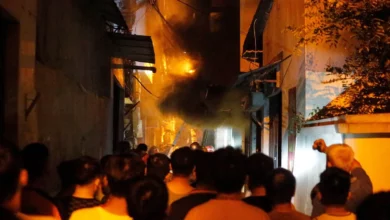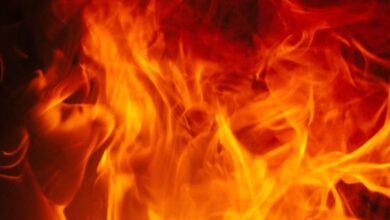
BAGHDAD (Reuters) – Iraq’s election commission said on Monday it had completed a manual recount of May’s parliamentary election but was forced to cut the process short in the capital because voting records had been destroyed by a warehouse fire two months ago.
The recount was ordered by parliament in June after a government report concluded there were serious violations in an initial count using an electronic vote-counting system.
However, within hours of parliament voting for the recount, a fire broke out at a warehouse where voting machines and other records from the capital were kept.
The electoral commission spokesman said in a statement the body had been forced to cancel the remaining half of the recount in the capital. For what appears to be the first time, the statement said ballot boxes and actual ballots were among the records destroyed in the fire, contradicting earlier official accounts that ballot boxes had been saved.
The fire initially raised concern that an election dispute could lead to violence, although those worries were partly assuaged when cleric Moqtada al-Sadr, whose bloc won the most votes, declined to call his followers into the streets.
Three months after the vote, the winning parties are still embroiled in negotiations over forming the next governing coalition. A group of Iran-backed Shi’ite militia leaders placed second behind Sadr’s bloc, with incumbent Prime Minister Haider al-Abadi’s bloc in third place.
After the fire, the electoral commission’s leadership was suspended and replaced with a panel of judges who oversaw the recount. It is expected to announce its results in the coming days.
“The board of commissioners composed of assigned judges has completed the manual recount process for all voting stations and centers in which there were complaints or appeals in all of Iraq’s provinces and abroad,” Judge Laith Jabr, the spokesman, said in the statement.
The political uncertainty over the makeup of the new government has raised tensions at a time when public impatience is growing over poor basic services, unemployment and the slow pace of rebuilding after a three-year war with Islamic State.
Reporting by Ahmed Aboulenein; Editing by John Stonestreet, Angus MacSwan and Peter Graff.




